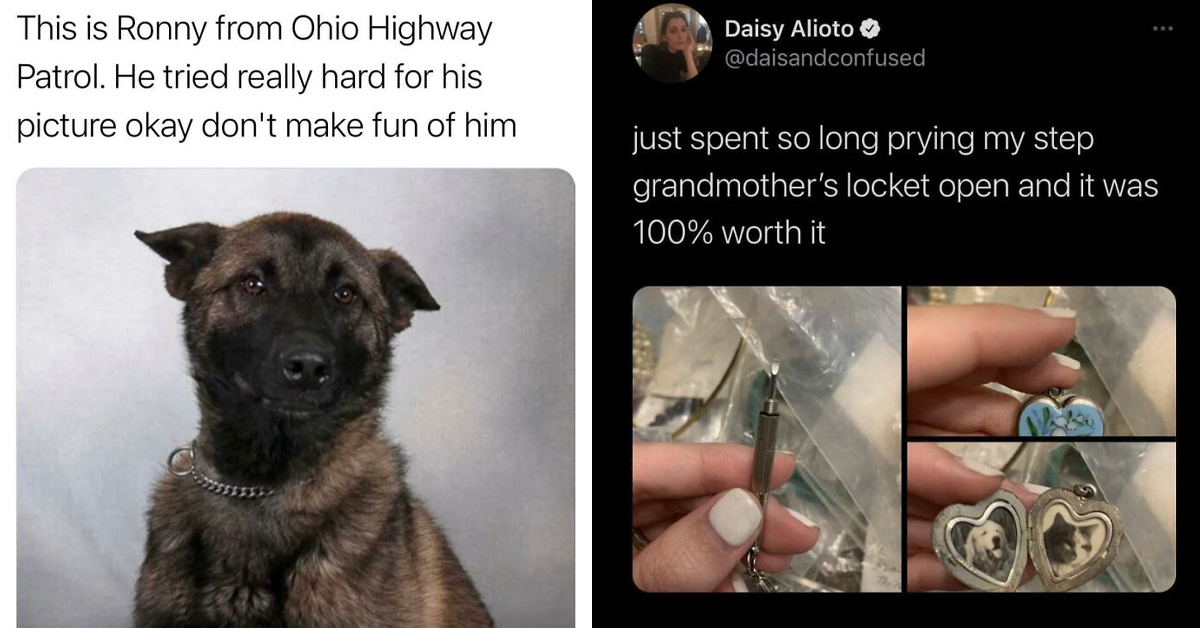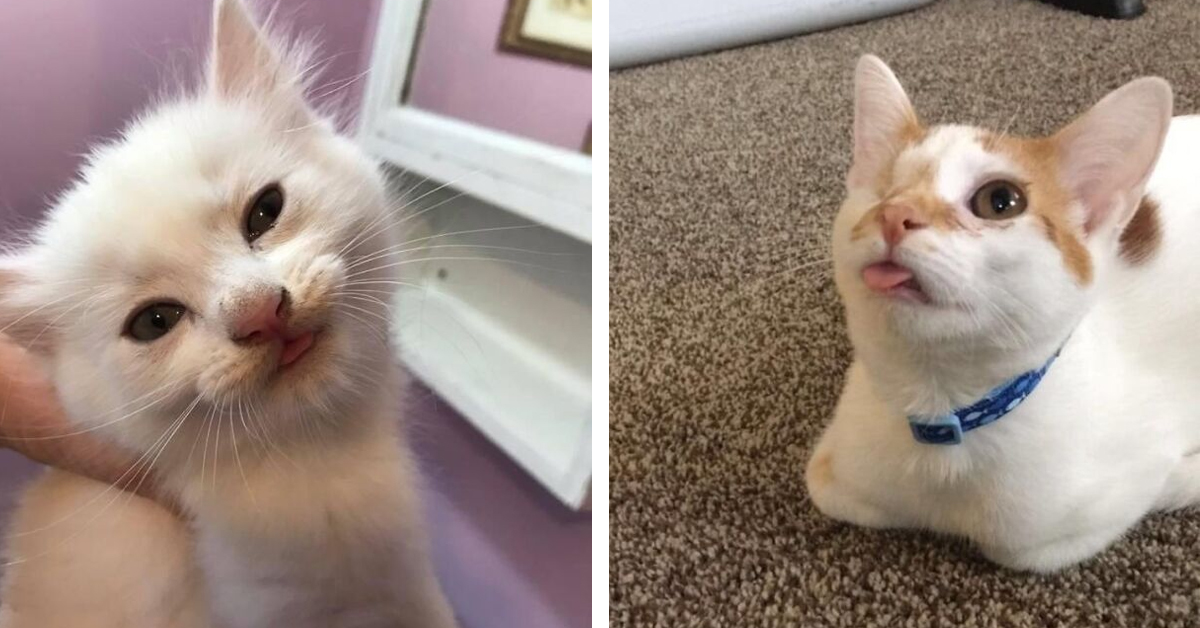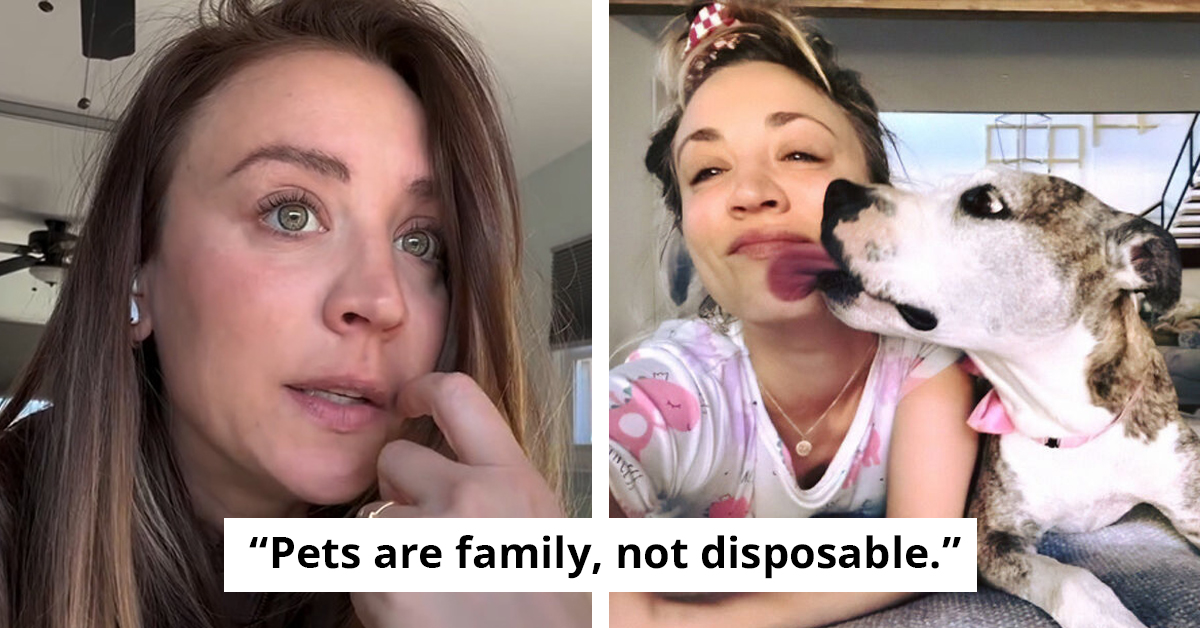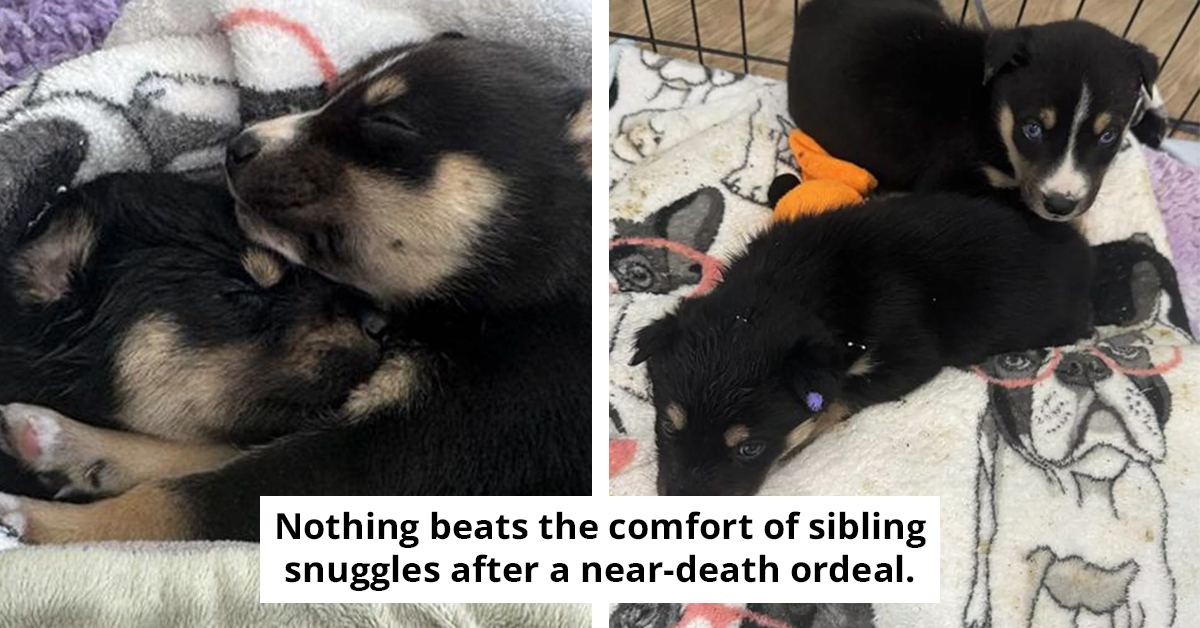Redditor's Family Accuses Her Of Disrespecting Her Late Dog's Memory By Picking A New Dog Over His Littermate
Losing a beloved family pet is never easy to deal with, especially when they have been a part of your family for years. Imagining life without them can be devastating to everyone involved.
Most of us are usually not ready to let go, but we have to put our feelings aside and pick the option for the greater good. Sometimes refusing to let go can lead to more suffering and pain for your pet and reduce its quality of life.
Your pet's well-being should always come first, no matter how you might feel about it personally. Many don't feel comfortable adopting a new pet right after the passing of their old one.
It feels disrespectful in a way to your previous pet. That is why most wait for a little before going through with that decision.
A Redditor who later deleted her account made a post on the r/AmItheA**hole subReddit where she explained how her family dog recently died, and her mom wanted to "replace him" with his littermate, who's not as affectionate as him. The user's mom felt it would be disrespectful to their dog's memory to adopt a new puppy.
The Reddit community had a lot of different reactions to the user's post. Scroll down to check out the full Reddit post, and scroll a little further to read the comments from the original post.
Here's the original post by a Reddit user who later deleted her account:

OP's late dog, Spade, had a littermate brother who got abandoned by her grandfather.

OP prefers having a more affectionate dog who could also influence Spot positively.

The Grieving Process
When a pet passes away, family members often undergo a complex grieving process that can vary significantly among individuals. Dr. Julie Axelrod, a clinical psychologist, notes that grief for pets is frequently underestimated and can manifest in various forms, including denial, anger, and profound sadness, similar to losing a human loved one. Research published in the Journal of Veterinary Medical Education highlights that pet owners may experience unique challenges, such as feelings of guilt for considering adopting another animal too soon, which can complicate their healing.
This emotional turmoil is often compounded by societal perceptions that devalue the loss of a pet compared to human relationships. A study conducted by the University of Michigan found that individuals who openly express their grief over a pet's death often benefit from social support and validation, which can facilitate healthier coping mechanisms.
Grieving and Moving Forward
Loss can deeply influence familial relationships and individual decision-making. When a family member feels that adopting a new pet disrespects a deceased pet's memory, it can stem from unresolved grief.
Studies in grief psychology emphasize that grieving is a highly individual process, and what feels right for one person may feel wrong for another.
Here's how the Reddit community reacted to the user's post:

It's never a good idea to adopt a dog without consulting with everyone first.

"There's no need to stress Spot out."

Family Dynamics and Conflict
Family disagreements regarding the adoption of a new pet can often reflect deeper issues within family dynamics. Research suggests that unresolved familial conflicts, especially surrounding grief and loss, can resurface during emotionally charged discussions, like the decision to adopt another dog. A study published in the Family Relations journal emphasizes the importance of open communication and emotional validation in resolving conflicts, as family members may have different attachment styles and coping mechanisms when dealing with loss.
For instance, a family member who viewed the late dog as a protector may perceive adopting another pet as a betrayal, while another might see it as a way to honor the memory of the deceased animal. Understanding these varied perspectives is crucial for facilitating healthy dialogue and reaching a consensus.
Family dynamics play a significant role in how we navigate grief. Research from the Journal of Family Psychology indicates that open communication about grief can help family members support one another and articulate their needs.
In this scenario, having a family discussion about the meaning of loss and the potential for new beginnings could be beneficial.
It's better to keep the future in mind before making that decision.

What is lost cannot be replaced.

OP needs to give it a little more time and discuss it with her mom.

According to research conducted at Yale University, the way families cope with the loss of a pet can significantly impact their overall emotional well-being. The study found that families who engage in collective mourning activities—such as creating a memorial or sharing memories—tend to foster a sense of unity and shared understanding, which is vital in navigating subsequent decisions like adopting a new pet.
This collective approach not only validates the feelings of each family member but also helps in establishing a supportive environment where everyone feels heard. It’s essential to create a space for these discussions, allowing family members to express their feelings openly, which can enhance emotional resilience and cohesion.
Navigating Attachment in Grief
Attachment theory provides insight into how individuals form bonds with pets and the emotional weight of loss. According to Dr. John Bowlby, our attachments to animals can be as profound as those to humans.
When someone loses a pet, it can trigger feelings of abandonment and insecurity, complicating their ability to embrace new attachments.
OP needs to be respectful of her mother's feelings.

Dogs aren't toys that you get to snuggle with.

It's not OP's decision to make.

Psychological Benefits of Pet Adoption
Adopting a new pet can offer significant psychological benefits, particularly in the aftermath of losing a beloved animal. Research from the Human-Animal Bond Research Institute indicates that pet ownership can alleviate feelings of loneliness and depression, promoting overall mental health. Engaging with a new dog can provide companionship and a renewed sense of purpose, which can be especially helpful for individuals struggling with grief.
Moreover, studies show that caring for a pet can increase levels of oxytocin, the hormone associated with bonding and emotional connection. Therefore, while the decision to adopt may feel contentious, it is vital to consider the potential positive impacts on mental health and emotional recovery from loss.
For families navigating this complex situation, counseling can provide a safe space to express emotions and explore the possibility of adopting another pet. This approach helps validate the feelings of loss while allowing room for new connections.
Additionally, creating rituals to honor the deceased pet can also facilitate the grieving process, fostering a smoother transition into welcoming a new pet.
It's her parents' house, after all.

Bringing a new dog to a household should be a group decision.

"It's heartbreaking to lose a part of the family."

It’s important to acknowledge that the timing of adopting a new pet is a personal decision that varies among individuals. Research suggests that there’s no universally ‘right’ time to bring a new pet into the home; instead, it should be based on the emotional readiness of each family member. According to experts, the grieving process is non-linear, and it's essential to check in with one another to gauge feelings and readiness.
Families might benefit from seeking the guidance of a licensed therapist who specializes in grief counseling, as a professional can help facilitate these discussions and provide support tailored to their specific dynamics. This approach can ensure that the decision to adopt aligns with the emotional needs of all family members.
The Role of Memory in Attachment
Memories associated with pets can evoke strong emotional responses. Research in cognitive psychology suggests that our memories shape our perceptions of new experiences.
If a family member equates adopting a new pet with forgetting the old one, it may hinder their ability to accept change.
OP is only looking for a new companion and is not trying to replace her dog.

Bringing in a new dog could only cause more stress to Spot.

Spot could also use a friend.

Coping with Guilt
The guilt associated with considering a new pet after losing one can be overwhelming. Research from clinical psychology shows that guilt is a common response to grief, especially when it comes to the perception of 'moving on' too quickly. A study published in the Journal of Loss and Trauma found that individuals often struggle with self-forgiveness during the grieving process, especially when they feel they are dishonoring their late pet's memory.
To mitigate these feelings, experts recommend reframing the narrative surrounding adoption. Instead of viewing it as a replacement, families can understand it as a tribute to their late pet, honoring their memory by providing a loving home to another animal in need. Engaging in rituals to commemorate the deceased pet while integrating a new dog into the family can help ease this transition.
It's crucial for families to acknowledge these emotional ties while also recognizing that new relationships can bring joy without diminishing past bonds. Discussions about the unique qualities of each pet can help differentiate them in memory, thereby easing the transition.
Encouraging open dialogue about feelings related to loss and new beginnings can foster understanding and acceptance among family members.
"You can’t fight City Hall - that’s your mom."

Spade's memory could be honored if OP is allowed to do that.

OP needs to respect her mom's boundaries under her roof.

To navigate the complexities of grief and family dynamics, practical strategies can be incredibly helpful. For instance, establishing family meetings where each member has the opportunity to voice their feelings, concerns, and desires regarding a new pet can foster an environment of mutual respect and understanding. Research has shown that structured family discussions can promote emotional intelligence and enhance relationships, especially when family members feel safe to express their thoughts.
Additionally, families might consider engaging in joint activities, such as visiting animal shelters together, before making a commitment. This shared experience can help to create a sense of unity while allowing everyone to participate in the decision-making process.
Coping Strategies for Grief
Effective coping strategies can help individuals process their grief in healthy ways. Research in clinical psychology suggests practices such as journaling, art therapy, or support groups can help individuals articulate their feelings and share their experiences with others.
Implementing these strategies within family settings can promote healing and openness, allowing everyone to express their feelings about the deceased pet and the potential for a new addition to the family.
OP doesn't have a lot of choice in the matter since she lives in her parents' house. Once she moves out of there, she can make this choice without anyone influencing or being against it.
If you enjoyed reading this, make sure to share it with your friends or check out similar content on our platform.
Ultimately, it's important for families to create an environment that acknowledges grief while being supportive of new beginnings. Establishing family rituals that honor lost pets, while also celebrating the joy of new pets, can help bridge the emotional gap.
Encouraging patience and understanding as family members navigate these complex emotions can lead to healthier relationships and shared experiences.
Expert Opinion
This situation reflects the delicate balance between honoring a pet's memory and embracing the possibility of new attachments. Grief can manifest in various ways, and it's essential for family members to communicate their feelings openly to foster understanding.
Encouraging discussions around grief can help families navigate these complex emotions and find common ground in their decisions regarding new pets.
Analysis & Alternative Approaches
Research in the field of psychology reveals that grief is a complex and multifaceted experience, often accompanied by conflicting feelings about moving forward.
As studies consistently show, open communication and support among family members can facilitate healing and acceptance of new relationships while honoring the past.
Analysis & Alternative Approaches
Understanding the psychological implications of adopting a new pet after the loss of a beloved animal is essential for families navigating this sensitive terrain. Research consistently highlights that grief is a complex emotional experience, and each family member may cope differently. According to the American Psychological Association, it's crucial to foster an open dialogue where feelings can be expressed and validated.
Ultimately, finding a balance between honoring the memory of the late pet and embracing the joy that a new pet can bring is a delicate yet achievable goal. With proper support, families can navigate this transition thoughtfully, leading to healing and renewed companionship.




